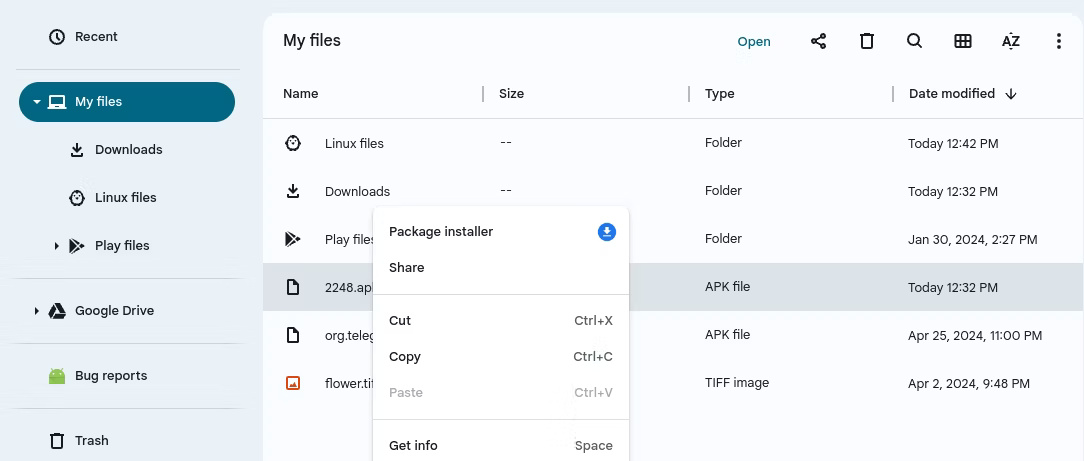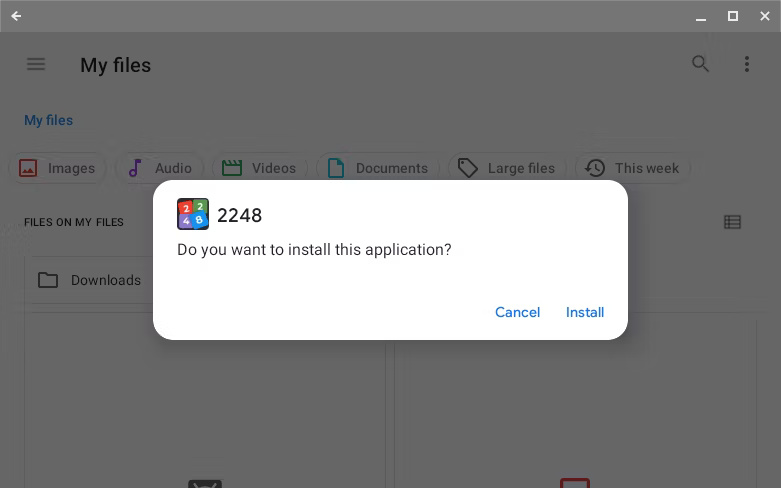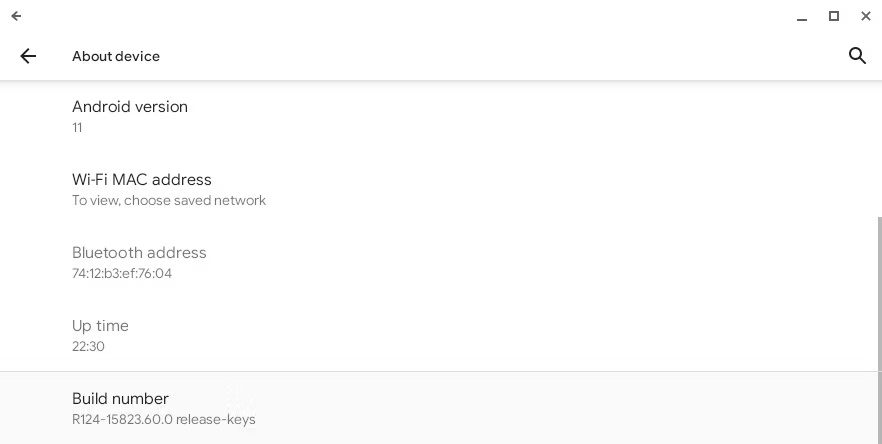How to use Android apps on Chromebook
Chromebooks support a lot of apps through the Google Play Store, but officially supported apps aren't always enough. You can unlock your Chromebook's full potential by sideloading Android apps.
Prepare to sideload Android applications on Chromebook
Before you can sideload Android apps on your Chromebook, you need to make some adjustments to your settings. If you're running an older version of ChromeOS, you'll need to enable Developer Mode on your Chromebook. After this, you will be able to install any Android app by right-clicking on the APK file and selecting Package installer .

On Chromebooks running the new version of ChromeOS, you can bypass enabling Developer Mode (and all the risks that come with it) by using the Android Debug Bridge (ADB). Before ADB can be enabled, Linux needs to be set up by navigating to Settings > About ChromeOS > Linux development environment and clicking the Set up button .

If you don't have a Linux environment set up yet, you can continue through the pop-up window using the suggested values to quickly create one. However, it is recommended to increase the amount of storage allocated to your Linux environment if you plan to install many Android applications.
It is also recommended to click the toggle in Linux Development Environment > Develop Android apps to Enable ADB debugging .

You can then close the Settings app and open Terminal via the Home tab. When Terminal opens, click penguin and enter the following commands one by one when prompted to install and connect the ADB tools:
sudo apt install adb y adb connect arcAnother prompt will appear after ADB connects successfully. When you see the window appear with the Always allow from this Computer prompt , check the checkbox to activate the setting and click OK to save.
Now you're ready to install Android apps on your Chromebook.
Download and install Android APK
Now you've changed your settings and are ready to start installing Android apps on your Chromebook - but if you haven't already, you should find and download the Android APK from a secure website.
The APK installation process is simple: Open Files, drag and drop the APK into the Linux files folder , then enter the following command in Terminal for each APK you want to install:
adb -s emulator-5554 install [apkfilename].apkIf the sideloaded APK is compatible with Chromebooks, it will be available to use immediately. If not, you may need to do a bit of troubleshooting. By following the right steps, you can get many APKs working despite initial errors.
What to do when APK doesn't work?
Unfortunately, it's not uncommon to encounter errors when trying to sideload Android apps on Chromebooks. They are not built for the platform so they are not officially supported, so the performance of Android apps on Chromebooks will vary.

The most common errors you may encounter are:
- "This file type is not supported. Learn more about opening files on ChromeOS"
- "failed to connect to 'arc:5555': Connection refused"
These happen due to compatibility issues with Android 11, but you can bypass it by navigating to Settings > Apps > Manage Google Play preferences > Android Settings > Storage > Internal shared storage > Files > My Files and opening APK from Linux files folder .
If you get a "Permission denied" or "Command not found" error , try repeatedly clicking Build number in Settings > Apps > Manage Google Play preferences > Android Settings > About device .

If that doesn't work, you can also try entering the following commands to restart your ADB connection:
adb start-server adb connect arcEnjoy using Android apps on ChromeOS
After installing an app or two, you're ready to enjoy ChromeOS's full potential. You should try out all the best Android apps on your Chromebook while you're at it - and if you're a developer, you can even try running your own apps.
Compared to the 3.3 million apps already on the Google Play Store, the number of apps you can install as APKs is practically limitless. Just remember to check that any app you download is safe to use. With the right precautions, sideloading APKs on Chromebooks is both safe and extremely fun.
Having fun!